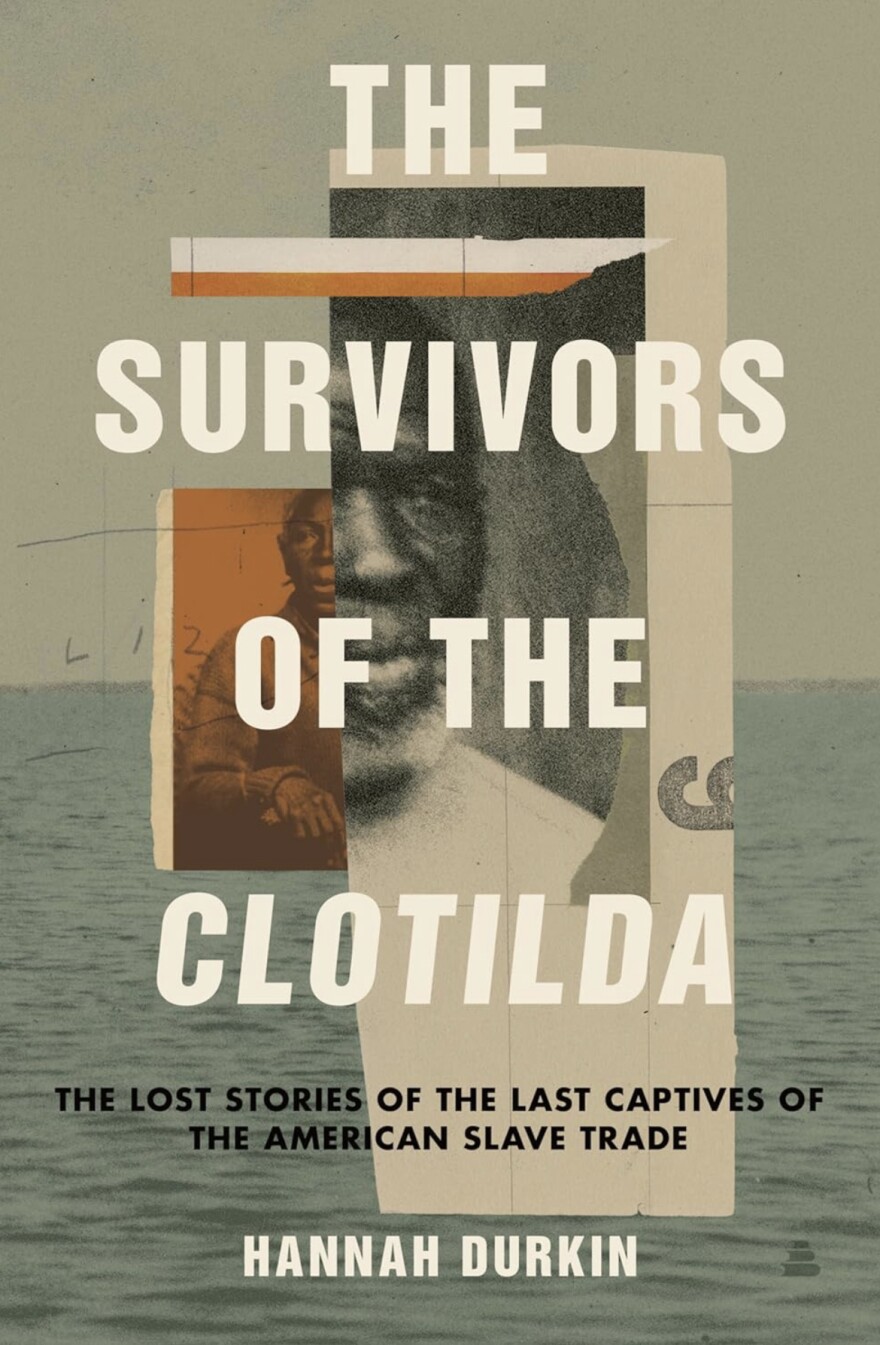Sometimes when you are out looking for one story, a better one comes along and finds you. That’s what happened to Dr. Hannah Durken while she was researching the life and work of historic African-American filmmaker Zora Neale Hurston.
Support Local Stories. Donate Here.
“She was probably the first professional African-American woman filmmaker,” said Durken. “So she traveled to the south in the late 1920s recording the stories of mostly African-American communities in the south, in Florida and Alabama. And I was trying to identify the people in her film. One of those people was a man named Kossula or Cudjo Lewis, who was long thought to be the last (living) survivor of the Clotilda slave ship.”
The Clotilda is believed to be the last slave ship to reach the Gulf Coast. It made port at Mobile Bay in July 1860 after a treacherous 45-day journey across the Middle Passage. That voyage and the captives who survived are now the subject of Dr. Durken’s new book called “The Survivors of the Clotilda – Lost Stories of the Last Captives of the American Slave Trade.”
“The U.S. did abolish its slave trade in 1808,” said Durken. “And it becomes (a crime of) piracy in 1820 which means it’s a capital offense, you can be executed for it. But it is not very well policed really until the eve of the Civil War.”
RELATED: Exploring the Clotilda, the last known slave ship in the U.S., brings hope
The captain of the Clotilda, William Foster wrote that he was dodging anti-slavery patrols on route to West Africa, and also on the West African coast while he was forcing his captives aboard the Clotilda. In all, he recorded that he managed to smuggle 110 people onto the ship. Not everyone survived.
After the Clotilda made port and the captives were taken off the ship, they were moved around to different locations to avoid detection. The ship itself was abandoned, set afire, and sunk in the Mobile River.

A U.S. Marshal actually found the captives at a plantation north of Mobile. He counted 103 captives, but before they could be taken by the authorities they were moved again and lost, with the help of some friendly local judges and district attorneys.
Little by little, the slavers sold off the 103 survivors. Many of those survivors formed close bonds during their 45 horrifying days at sea. And even as they were separated and scattered around the south, some of those bonds were deep.

“About 30 of them are enslaved in Mobile,” said Dr. Durken. “The rest are sent to the cotton belt in central Alabama, mostly. So not only do the Mobile Africans establish their own town, a township north of Mobile, but at least two of the Clotilda survivors who were sent to the cotton belt, were sent to Wilcox County, Alabama, somehow find their way back down 150 miles south. Back to Mobile more than 20 years after they were taken away from each other.”
One of those two survivors was called Quilla Wheeler and another called either Ossa Hunt or Ossa Allen.
“And what’s striking about Ossa is that he dies in the 1890s, so he disappears from the historical record,” said Dr. Durken. “But there is evidence to show that his son in raised by another of the Clotilda survivors. And according to census data, that child is her nephew. So what that tells us is that Ossa Allen reunited with his sister when he makes his way back to Mobile.”
In all, Dr. Durken was able to identify about 80 other survivors of the Clotilda, at least one who lived until 1940.
That township formed in Alabama by Cudjo Lewis and other survivors of the Clotilda still exists. Africatown operated as a distinct community up until the end of World War II, but has since become part of the city of Mobile. The National Park Service added the Africatown Historic District to the National Register of Historic Places in 2012.
Seven years later, a group of researchers found the wreck of the Clotilda in the Mobile River. The remains of the ship are also now on the National Register.


